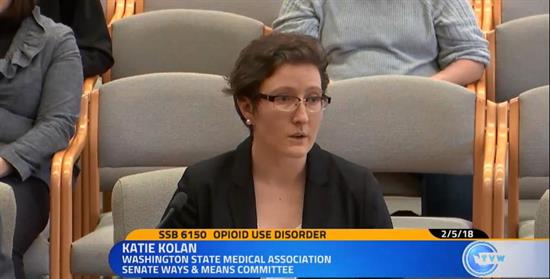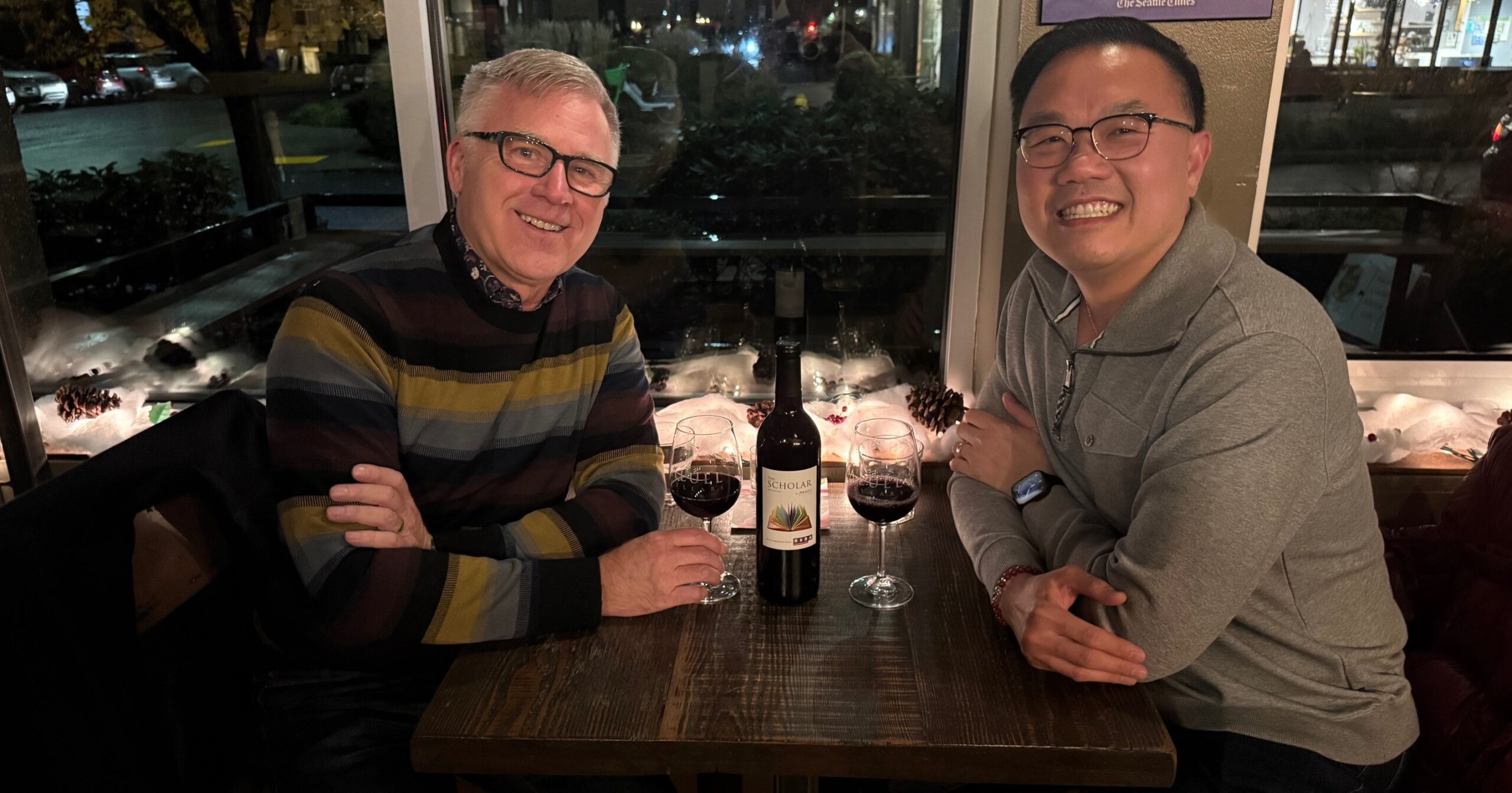May 01, 2019

In a hectic 2019 legislative session, GSBA advocacy staff have frequently encountered an ebullient former Scholar in the hallways of the Legislature. While many people have negative impressions about lobbyists and their work, Katie Kolan is a champion for communities across the state. She laughs when saying, “The job I get to do is really cool! Lobbyists are not just slimy dealers lurking behind buildings, but more like idea brokers and translators between legislators and members of the public.”
Originally from northwest Washington, Katie left home when she was 15 as her father was dying. “This really launched me into maturity earlier than I was ready for. I knew I had to get to school, get an education, get a degree, But I didn’t have the money to do it. I had no financial support from my family, which was bankrupt from medical bills.” When she got into the University of Washington, Katie immediately had to find near-full time work to pay for her schooling and living expenses. “GSBA saved my life – I would not have been able to do it without the financial support of the Scholarship Fund. Because it was so much more than just the money – it gave me such a huge boost of confidence, a boost forward. It launched me into the work I’m doing currently.”
While at UW, Katie’s goal was to become a lawyer to do class action civil rights cases. In the meantime, she noticed that there was no formal structure for LGBTQ students to gather and form community on campus. She and a number of classmates worked with the administration to create the Q Center, a student-run LGBTQ resource center (and recipient of the 2014 GSBA Voice for Social Justice Award). At the same time, Katie was nominated and confirmed as a member of the City of Seattle LGBTQ Commission, where she was responsible for ensuring that our community’s needs and concerns were heard at the municipal level. Relentless activism for the LGBTQ community and disability rights community prepared her for who she is today: “It is vitally important to figure out how to move the LGBTQ and allied community toward a certain policy goal. And that process is relevant everywhere!”
Graduating in 2005 with a degree in Law, Society and Justice and a minor in Disability Studies, Katie then moved on to law school as planned at Golden Gate University. But once she got there, she began to reevaluate her plans. “I realized the world is a big place, and queer work is important, but the concepts touch everything else too. Grassroots advocacy work done in the LGBTQ world translates really well into the rest of the policy world.” Her interests began to shift toward health and medical ethics, end-of-life care, and access to healthcare.
Directly out of law school, Katie worked for a State Senator in Olympia. As she continued to evolve how she thought of her career, she realized that her dream of being a class action attorney meant that she could be working a full decade from the conception of a case to seeing results. That, as a new attorney, she was unlikely to get near the exciting civil rights work that inspired her in the first place. She realized that “at the State Legislature you can have massive systemic change in a relatively short period of time. To track that work through the courts can take so much longer. You can watch a collective idea take root. It’s helpful to understand the legal process, but really you just have to be present and feel gumption and commitment to the idea.”
On her new path, Katie chased down work with the Washington Medical Association because of their progressive end-of-life policies, where she has been working on their government and regulatory affairs team. And yes, that includes a healthy dose of lobbying in Olympia. “The job is incredibly fun and incredibly humbling – to have a part in developing good policy ideas and stopping bad ones (always in the eye of the beholder)… it is always different and often exciting and fast-paced.” Additionally, while lobbying can seem like an elite industry and inaccessible to the public, Katie says that in reality the truth is “that a lobbyist is anyone who can help translate ideas into good policy.” She adds “Often the best lobbyists are constituents – normal humans who are care about a particular issues enough to talk to their legislator about it… there is no substitute for grassroots advocacy, and a professional lobbyist can help guide that work.”
Over the years, she has seen the medical community take a greater interest in LGBTQ issues, which she calls a boon for the organization. She adds, “It is a privilege to shape state policy regarding LGBTQ issues and healthcare, and makes me feel proud to do this work. I take all the work I do on behalf of medicine seriously, but to translate it to something personal is really cool. And it’s more than just cool for some of the people for whom this work is being done– it’s a matter of life and death sometimes.” Katie says that she is especially proud of working to pass a bill requiring people to be 21+ to buy tobacco products, which is about to be signed into law by Governor Inslee after 5 years of hard work.
“Had GSBA not supported and encouraged and validated me, or given a sense of the right thing to do at the outset, I don’t think I would have had confidence and logistically speaking couldn’t have graduated and moved on to next thing. If I had been so far in debt, I wouldn’t have been able to go to law school. Launching from law school, all those skills emboldened me and helped me be effective with state medical association and whatever I go forward to do.”



